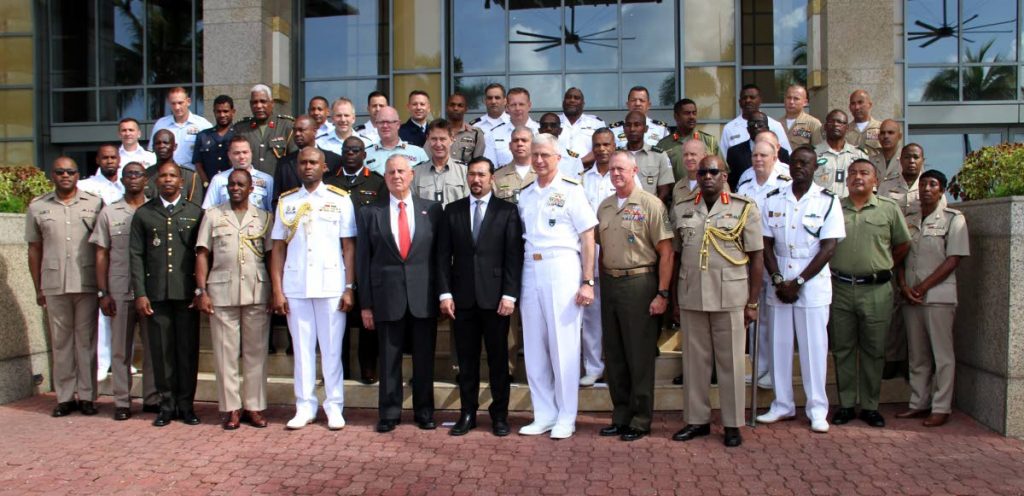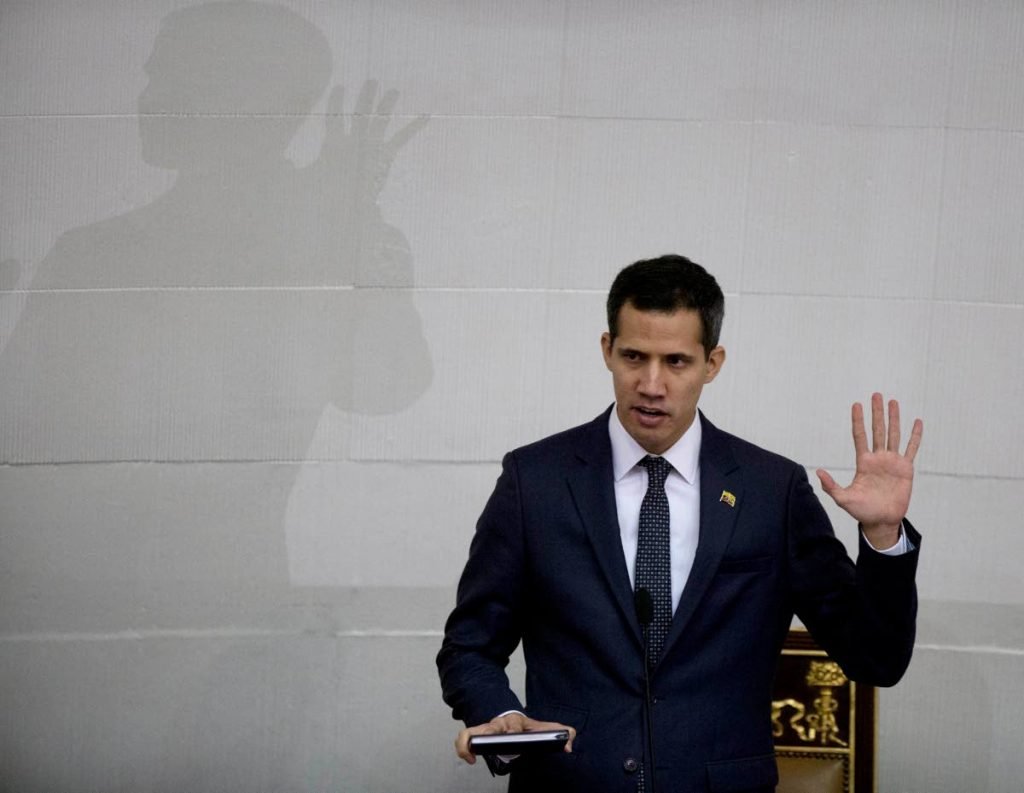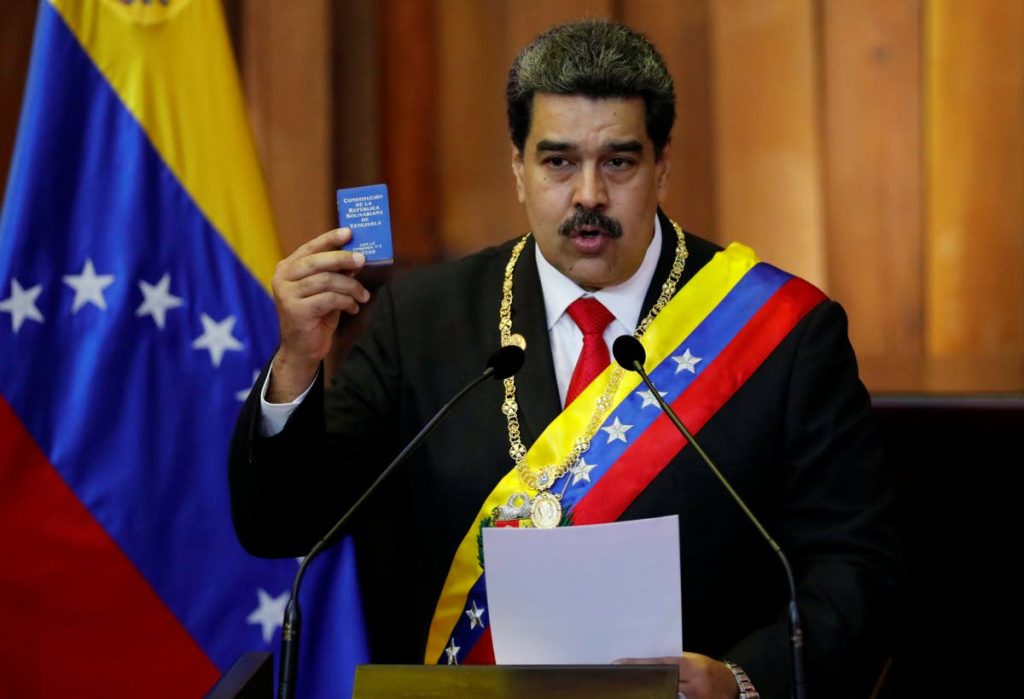The Venezuela question

Associate business editor CARLA BRIDGLAL reviews the US and TT's opposing positions on Venezuela over the past year which came to a head over the leadership of the South American country on Friday.
US Ambassador Joseph Mondello’s subtle censure yesterday of the TT Government’s stance regarding this country’s recognition of Nicolas Maduro as President of Venezuela is hardly surprising.
During his Senate confirmation hearing back in June last year, Mondello was asked specifically by chair of the Foreign Affairs Committee, Marco Rubio, if he would commit to talking to the TT Government and asking for this country’s support to call out Venezuela in the Organisation of American States (OAS) and even expel them from this “organisation of democracies.”
“This is a very important point,” Mondello responded. “I agree it is incumbent on the ambassador to do all in his or her power to discuss the various problems (with Venezuela) and see if we can bring some stability. It is an unstable situation and needs a lot of attention. It has to be done and should be done.”
In December, he also advocated for the Venezuelan people to accept humanitarian aid. Speaking at a ceremony where the US Embassy presented a bus to local NGO, the Living Water Community, which helps refugee in TT along with the United Nations High Commission for Refugees, Mondello said the US continues to call for the Maduro regime to accept international assistance and pursue policies that alleviate the humanitarian crisis.
TT has seen an influx in Venezuelan refugees, and Mondello sympathised, adding, "Supporting refugees is not the same as advocating for open borders. In fact, we are assisting the Government of TT as they work to secure their borders. Effectively managing the flow of people between countries is in everyone's best interest. Secure borders, and sympathy for those forced to flee a dictatorship, are not mutually exclusive."
Mondello has been diplomatic in his responses to TT’s position on Venezuela, but when on Thursday, Communications Minister Stuart Young confirmed that the Government recognised Maduro as the head of state, the US evidently felt compelled to respond. Mondello said he was “deeply concerned” by TT’s stance, and while he reiterated his country’s support of TT, he reiterated its position that Juan Guaido was the recognised leader of Venezuela.
Guaido, Venezuela’s US-backed opposition leader and president of the country’s legislature, the National Assembly, announced himself the interim president on Wednesday, according to Venezuela’s constitution, he claimed. The US quickly responded by saying it will contribute US$20 million in humanitarian aid to the country, via Guaido.

For the most part, TT has remained neutral in its positions at the OAS when it comes to Venezuela, most recently, abstaining from an OAS vote to determine if the body will recognise the Maduro-led regime (even while sending Foreign Affairs Minister Denis Moses to represent the country at Maduro’s inauguration). In 2017, however, the Prime Minister bluntly called for OAS secretary general Luis Almagro’s resignation for what he believed was an impartial stance towards Venezuela. “Trinidad and Tobago registered a strong objection to the behaviour of the OAS leadership. The public servants from the OAS took it upon themselves to engage the Government of Venezuela, the president in fact, in a very derogatory manner,” Rowley had said then.
It was a concept he echoed at a press conference on Friday. Rowley contended that Almagro, without consulting other members of the OAS, accepted Guaido as the new leader.
The OAS, instead of being influenced by “I don’t know who,” should have been the forum in which the political volatility in Venezuela should have been addressed from the time deterioration began.
He justified TT’s admonishment of Almagro. “It was the public servant who headed the OAS, the secretary general, at the urging of who I don’t know took the position he would criticize and attack the Venezuelan presidency. That was a no-no. Whether you like Maduro or you like Venezuela, that was not the point. The point was taking sides in an issue when it should have been the vehicle for peace and good order. TT did not hesitate in condemning that action of the secretary general. In order to preserve the OAS as an honest broker and give us the chance of peace through dialogue, we called for the resignation of Almagro,” he said.
While Rowley was careful not to name any influencers, US Secretary of State Mike Pompeo in an address to the OAS on Thursday, made a strong call for all members of the OAS to disavow Maduro’s presidency. The US recognised Guaido, he said, and it was time the rest of the OAS did the same. “All OAS member states must align themselves with democracy and respect for the rule of law. All member states who recognise the Inter-American Democratic Charter must now recognise the interim president. The time for debate is done. The regime of former president Nicolas Maduro is now illegitimate, morally bankrupt, economically incompetent and corrupt,” Pompeo said.

The US has played a strong supporting role in TT, especially with assistance to national security forces, including providing training and equipment to help combat gang networks in TT, donating computer servers to the Organised Crime and Intelligence Unit, new canines to the TTPS, the Prison Service, and the Customs and Excise Division, and donated two new mobile scanners at the ports of Port of Spain and Point Lisas. Last year, the US Southern Command, along with TT’s military, conducted a joint military exercised, Fused Response, in TT. The US is also TT’s biggest trade partner – and the balance of trade tips in TT’s favour with a US$1.2 billion surplus last year. TT is also part of the Caribbean Basin Initiative, an agreement that allows certain goods and services in the Caribbean to enter into the US duty free. This agreement is set to expire September next year. Beyond that, the US formally established diplomatic relations with TT on August 31, 1962, formally opening the embassy on the same day the country declared independence from the UK, and from 1940 to 1963, the US had a naval base in Chaguaramas.


Comments
"The Venezuela question"